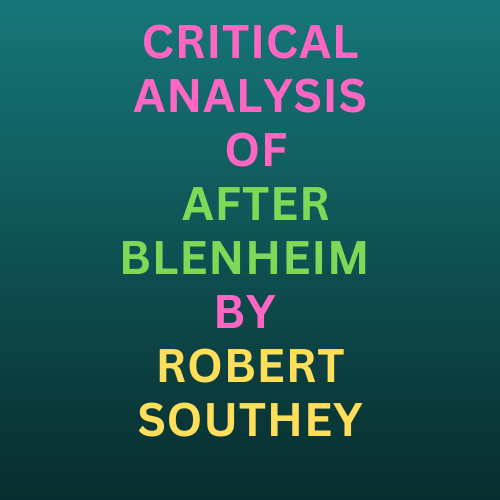Here is a CRITICAL ANALYSIS OF AFTER BLENHEIM BY ROBERT SOUTHEY. This would provide learners with a proper detail of the poem to comprehend it properly.

“After Blenheim” is a poem by Robert Southey that describes the aftermath of the Battle of Blenheim, which took place in 1704 during the War of the Spanish Succession.
The poem is written in the form of a folk ballad and is told from the perspective of an old man who is describing the events that occurred after the battle to a young child.
The poem begins with a description of the devastation caused by the battle, with the old man noting that “the village was burned, and all the people slain.” This sets the tone for the rest of the poem, which is one of despair and sorrow.
YOU ARE READING
CRITICAL ANALYSIS OF AFTER BLENHEIM
The old man goes on to describe how the people of the village were forced to flee their homes and how they were left with nothing.
One of the key themes of the poem is the idea of the futility of war. The old man notes that “the great Duke of Marlborough” fought the battle “for a ribbon / to stick in his coat.” This line is particularly poignant, as it highlights how the motivations for war are often trivial and meaningless.
The old man goes on to say that “and our good Prince Eugene” also fought in the battle, “for a plume in his cap.” This reinforces the idea that the war was fought for insignificant reasons and that it resulted in nothing but death and destruction.
The poem also touches on the idea of the innocent victims of war. The old man describes how the people of the village “were all at once put to the sword.”
This line is particularly powerful, as it highlights the indiscriminate nature of war and how it can affect even those who are not directly involved in the fighting.
In conclusion, “After Blenheim” is a powerful and moving poem that effectively conveys the devastation and futility of war.
Through its use of simple language and imagery, the poem is able to convey the horror of battle and the suffering of those caught in its aftermath. It is a powerful anti-war statement that remains relevant today.

